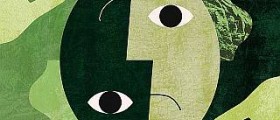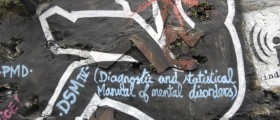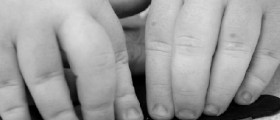
Both hallucinations and delusions are mainly associated with psychosis. Their common feature is significant distortion of reality. People often erroneously think that hallucinations and delusions are the same thing.
What are Hallucinations?
Hallucinations are sensory experiences that occur without any physical stimuli. These perceptions are experienced in consciousness and awaken state. Hallucinations can occur in any sensory modality and can be visual, auditory, olfactory, gustatory and tactile.
Most commonly when hallucinating, people see movement in their peripheral vision or hear unclear noises although these experiences are not real. Sometimes, though, hallucinations can occur in the form of smells, tactile feelings or tastes. Hallucinations can be caused by mental illnesses such as schizophrenia and bipolar disorder. Other causes of hallucinations include sleep deprivation, use of drugs, delirium tremens and other conditions.
What are Delusions?
A delusion represents a false belief for which a person is convinced is true. Delusions arise from incorrect conclusions regarding external reality in which the person strongly believes despite of evidence to the contrary. Delusions are also a common symptom of mental or neurologic illnesses. Common delusions are those associated with themes such as jealousy, control and religion.
Hallucinations Vs Delusions
To some extent hallucinations and delusions are similar and may occur due to psychotic disorders such as schizophrenia or bipolar disorder. They are disorders that have no basis in reality. But, hallucinations can be also due to use of LSD, cannabis, cocaine and amphetamines and may result from withdrawal from recreational drugs.
Injury to the brain can change the brain function and cause hallucinations. Extreme exhaustion, stress, sleep deprivation, neurochemical activity in the brain that occurs prior to migraine headache attack, medication and sensory deprivation can all produce hallucinations.
Causes of Delusions
Delusions are almost exclusively caused by mental diseases like manic depression, dementia, anorexia nervosa and obsessive compulsive disorder and body dysmorphic disorder. Delusions commonly indicate delusional disorder, shared psychotic, schizoaffective disorder and schizophrenia.
Main Differences Between Hallucinations and Delusions
An individual who is experiencing hallucinations due to use of some hallucinogenic drug will get better once the effect of the drug wears off. However, delusions may not end until an underlying mental illness is not treated.
Also, people who are having chronic hallucinations usually seek medical help as they are typically aware of their condition. Those suffering from delusions, on the other hand, may never seek treatment as they do not recognize their condition and tend to stick to their false ideas for many years.

















Your thoughts on this
Loading...